Pliosaur: Museum appeals for help excavating sea monster
- Published
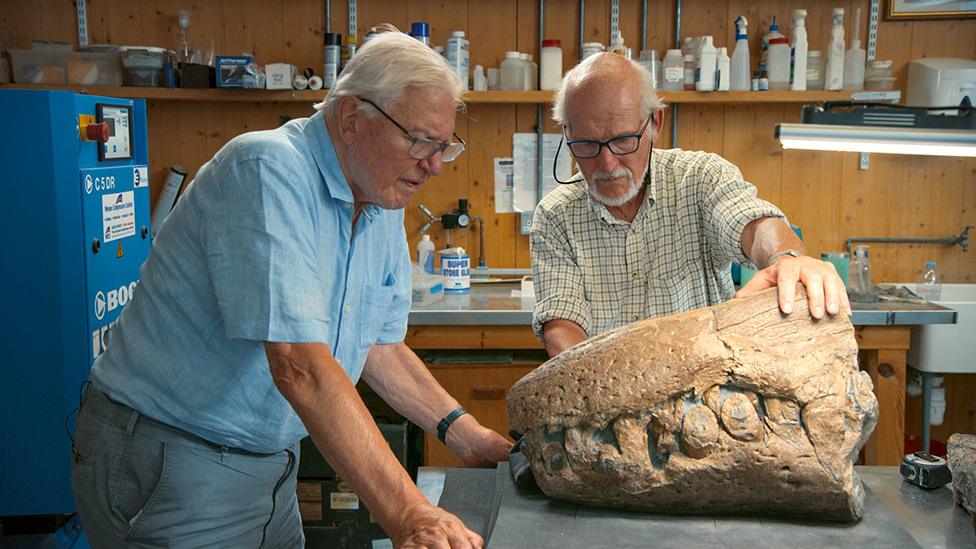
Steve Etches shows Sir David Attenborough the snout - the first piece to be found
Palaeontologists say they are in a "race against time" to recover a huge prehistoric sea monster from eroding cliffs on the Jurassic Coast.
The 2m-long (6ft) skull of a pliosaur, excavated from high above a beach in Dorset, is on display at the Etches Collection, external in Kimmeridge.
Now the museum is crowdfunding to recover the rest of the creature that remains embedded in the cliff face.
Museum founder Dr Steve Etches said excavating the body was a "priority".
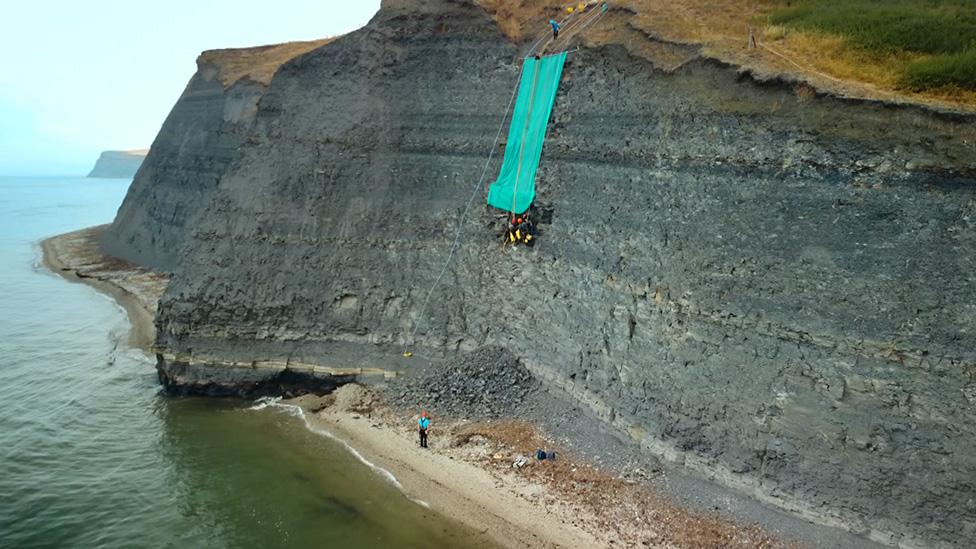
The excavation was conducted on ropes high above the beach
The snout of the pliosaur was discovered in 2022 by fossil enthusiast Philip Jacobs, prompting an excavation involving teams suspended by ropes high above the beach.
Sir David Attenborough investigated the discovery of the skull in a BBC film broadcast on New Year's Day.
Dr Etches, who led the effort to remove and prepare the fossil, hopes to raise funds to excavate, preserve, study and display the remainder of the 150-million-year-old creature.
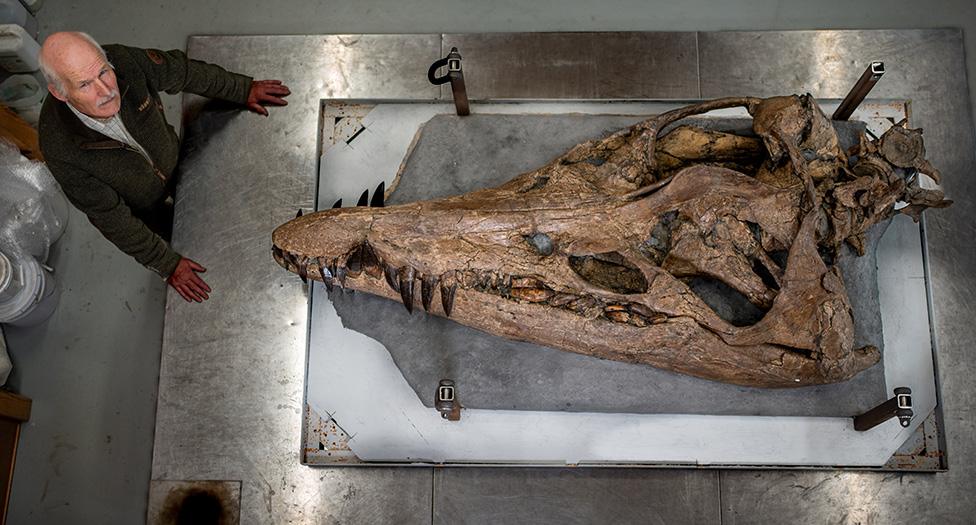
The 2m-long pliosaur skull is one of the most complete ever found
He said: "The excavation of the remaining pliosaur body is a race against time and nature, so this is a priority for me, especially since we could lose important pieces of the specimen due to rapid cliff erosion."
The pliosaur skull is one of the most complete and well-preserved specimens found.
The marine reptiles, which grew up to 12m-long, powered through the ocean using four paddle-like limbs.
The Kimmeridge skull bears features not seen on other pliosaurs, including a high head crest, suggesting it may be a species new to science.

Follow BBC South on Facebook, external, X, external, or Instagram, external. Send your story ideas to south.newsonline@bbc.co.uk or via WhatsApp on 0808 100 2240.
- Published2 January 2024
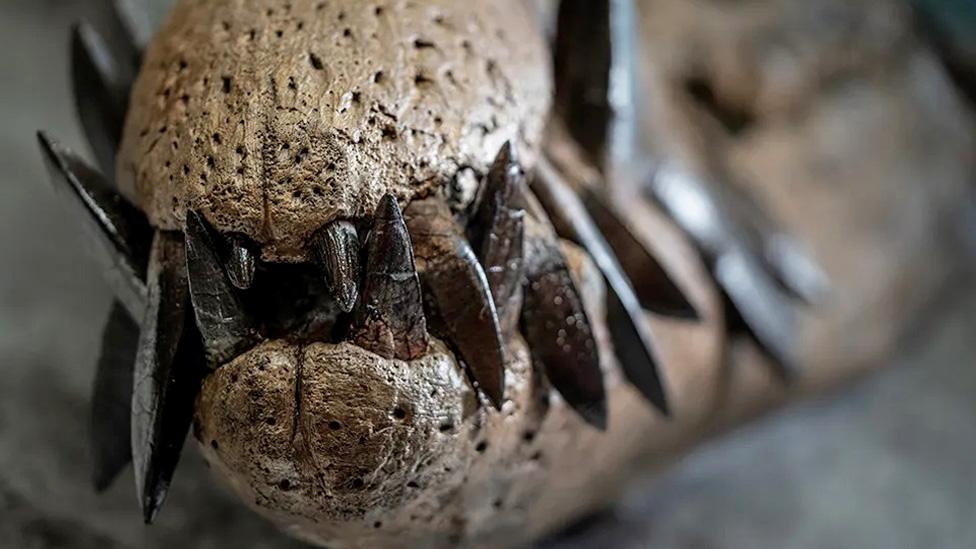
- Published10 December 2023
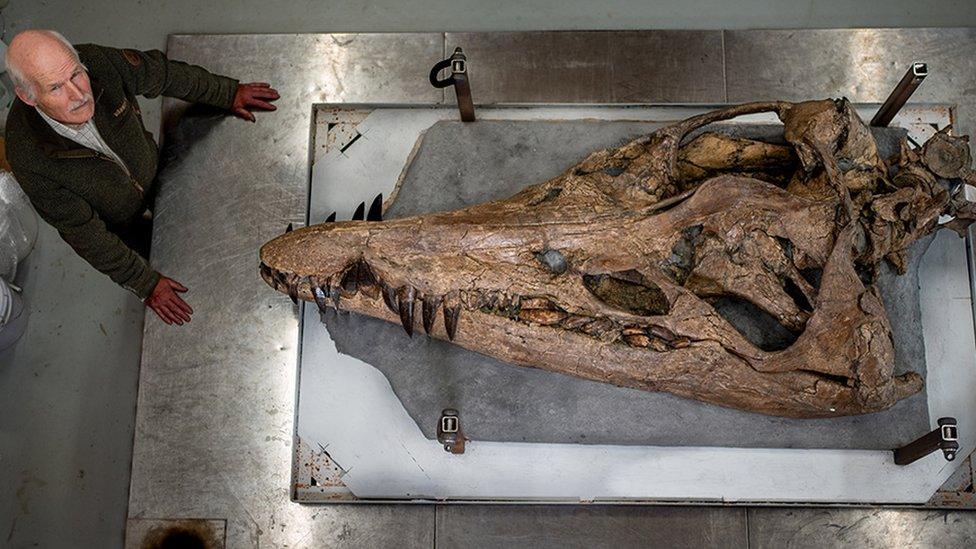
- Published21 July 2021
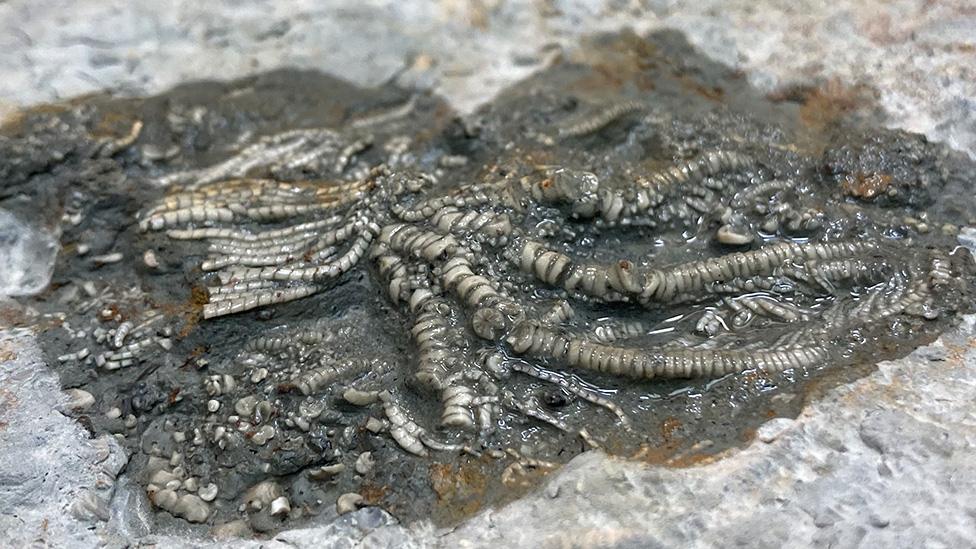
- Published3 August 2023
- Published25 July 2022
- Published2 July 2022